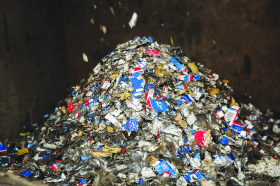

In 2017, working with law-enforcement authorities, SKF destroyed 15 tonnes of counterfeit bearings that were identified and seized several years ago. The batch, which comprised 17 000 individual items, had been destined for unsuspecting customers in the marine supply chain.
That haul was unusually large, but in other ways it was far from unique. Fake bearings are widespread in the maritime sector and analysis suggests that up to 50% of vessel managers may have inadvertently purchased counterfeit parts in recent years. When SKF shared this data with customers, their first reaction was disbelief. Few marine maintenance or purchasing professionals have any idea that counterfeiting is an issue in product categories such as bearings. Fewer still realise that it is an activity with such scale and reach, but it is a common issue for many global brand bearing manufacturers.
That is one reason why the marine sector has proved to be a lucrative market for counterfeiters, but there are other important factors at play. First there’s the nature of the product. Bearings vary widely in the detail of their design and construction, with different products built using different materials and designed for different operating conditions. Yet most bearings are manufactured in ISO-standard sizes. That makes life easy for the fakers. They can buy batches of cheap products on the open market, then add counterfeit branding, identification marks and packaging. At a stroke, a low-cost commodity bearing looks to the untrained eye like a unit from SKF or another top-tier manufacturer.
Then there’s the nature of the supply chain. Vessels are mobile assets, and maintenance or repair activities may take place in ports all over the world. When operators need new parts, they usually need them urgently, so they can get equipment fixed without adversely affecting schedules. Replacement parts are often sourced on an ad-hoc basis from local suppliers. Those suppliers are not typically specialists with direct relationships with the big industrial manufacturers.
Together, those conditions provide counterfeiters with straightforward access to a large market, even though every other participant in the chain is making their purchases in good faith. The best way to stamp it out is to ensure that the parts bought come from an approved source. Bearing manufacturer websites and customer services departments can point users to approved local suppliers anywhere in the world.
For more information contact Samantha Joubert, SKF South Africa, +27 11 821 3500, [email protected], www.skf.com
| Tel: | +27 11 821 3500 |
| Email: | [email protected] |
| www: | www.skf.co.za |
| Articles: | More information and articles about SKF South Africa |
© Technews Publishing (Pty) Ltd | All Rights Reserved